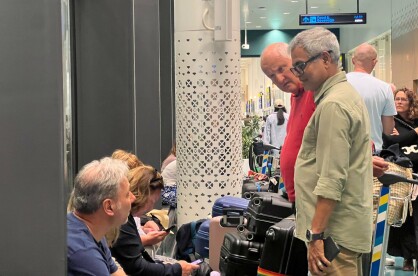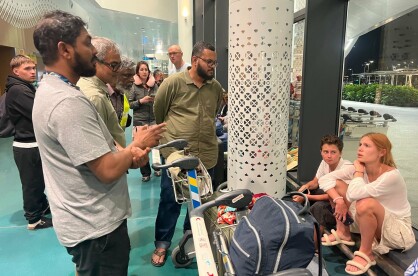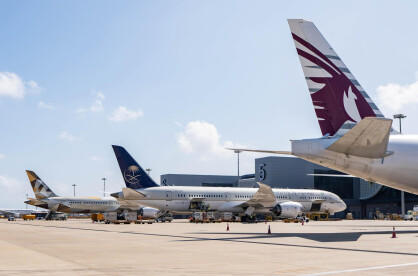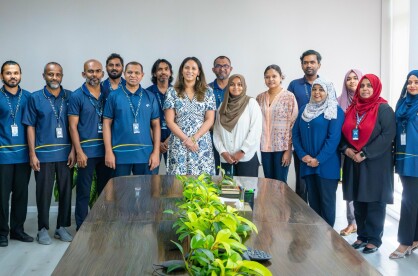In May 2023, the Ministry of
Tourism (MoT) released the anticipated Fifth Tourism Master Plan (5TMP). This comprehensive
plan is a pivotal document that chronicles the vision, policy priorities, and
strategies that will shape the industry's trajectory over the forthcoming
five-year period from 2023 to 2027. According to MoT, the formulation of this
plan has been carried out with the support of the Asian Development Bank, alongside
a team of expert consultants. To foster a consultative approach, the team
engaged in more than 70 meetings with stakeholders and conducted numerous field
visits.
Vision for Tourism
The vision
for the Maldivian tourism industry is firmly centered around the principles of
sustainable tourism, which the MoT has built upon through four essential
pillars: workers, visitors, communities, and businesses. The plan has
consistently demonstrated a strong commitment to addressing and meetings the
needs of these key pillars.
Priority Goals
This master
plan encompasses 15 priority goals, all aligned with the overarching vision of
achieving sustainable tourism. Thus, in order to ensure effective
implementation, each goal is accompanied by its own set of Key Performance
Indicators (KPIs) and corresponding strategies.
These 15
goals are:
1.
Maximize the benefits of tourism to all atoll
communities
2.
Communicate the full potential of Maldives to
existing and new audiences
3.
Offer new products and experiences
4.
Build climate resilience and protect natural assets
5.
Enhance energy security and achieve net zero
emissions
6.
Provide outstanding transport services
7.
Attract and retain a world-class tourism workforce
8.
Accelerate investment and innovative finance
9.
Regulatory reform to make it easier to do business
10. Accelerate
360o digitisation
11. Whole-of-government
prioritization of tourism
12. Advanced data
analytics and insights
13. Strengthen
health, safety, and security systems
14. Establish
transformational tourism industry standards
15. Ensure
tourism is accessible to all
Sun, Sand, Sea and More!
While the report incorporates goals
that have been included and revised from previous master plans, the inclusion
of newer, promising strategies instills a sense of hope and excitement for the
invigoration and continued development of the sector.
For instance, the creation of
iconic atoll destinations will undoubtedly benefit the atolls and
streamline their positioning. Take the case of Baa Atoll – the tourist
establishments in the atoll are capitalizing on the biosphere reserve status and
the exquisite nature in creating a compelling and distinctive tourism
experience. Interestingly, this has also been trickled down to developing
local island destination positioning as well.
Making Maldives a year-round
destination is also a significant goal. This goal holds immense potential
for the tourism industry, with far-reaching positive economic multiplier
effects anticipated. By extending the tourism season beyond the traditional
peak periods, the Maldives can harness its natural and cultural attractions
throughout the year, resulting in increased tourist arrivals and heightened
economic activity. The industry will likely become more robust and less
susceptible to seasonal changes.
Another important endeavor is the
development of MICE - meetings, incentives, conferences, and exhibitions.
This ingenuity is an important step to be taken in the diversification of the
industry from simply selling our white sandy beaches for holidays. The ideas of
barefoot conferences, Island Board Meetings, and corporate getaways are
promising initiatives! Similarly, another niche that is planned to be developed
is the promotion of Maldivian Cuisine through food festivals, TV
competitions, and culinary programs for YouTube are all very exciting as well.
Under human capacity development,
special consideration has been provided to women in the industry.
The plights of women in the Tourism sector have been written by MFR in 2021’s
article: Tourism needs more women. Therefore, the inclusion of
ambitious strategies, such as offering child support to women in the industry
and granting special scholarships, is an encouraging step forward. The plan
also encompasses other skill and knowledge development goals, including
internships and curriculum changes, which are currently being implemented. Therefore, it is crucial to evaluate the effectiveness
of such current policies and practices in place.
Furthermore, the emphasis placed on
digitalization within the plan is evident through various initiatives.
This includes the development of specialized applications and a focus on data
analytics, demonstrating a strategic alignment with the evolving landscape of
the industry and the globalized world.
Lastly, among the array of infrastructure
developments, it is promising to see improvements in Velana International Airport
(VIA) prioritized. MFR delves into the challenges faced in this regard,
emphasizing the urgency of these necessary changes in the article ‘High-end tourism destination and
the 'Low-end' Airport’.
These changes are absolutely essential since VIA is the biggest gateway to the Maldives.
4TMP
A critical addition to the current plan would
have been an update on the Fourth Tourism Master Plan (4TMP), delivering
insights into the degree of goal attainment, the extent of their realization, and
the goals that have been integrated into the Fifth Tourism Master Plan (5TMP).
This information is essential to be able to fully comprehend and assess the
success and impact of the 4TMP's but also enable policymakers and industry
stakeholders to identify areas of improvement and build upon the achievements
made in the previous plan.
Additionally, a discussion pertaining to some details
regarding the implementation and evaluation of strategies in the 5TMP is also
important to have a better understanding of the plan's operational framework.
The provision of clarity on the methods, mechanisms, and timelines through
which these strategies will be executed and assessed would foster transparency
and accountability, while also instilling confidence in the effectiveness and
efficiency of the plan's implementation. This comprehensive approach ensures
that the 5TMP is not only a documented plan but also a practical roadmap for
sustainable tourism development, underpinned by evidence-based decision-making
and continuous evaluation.
Implementation
This comprehensive
plan encompasses a multitude of aspiring goals, from medium to long term. Many
require significant financial investments, dedicated manpower, rigorous research,
and substantial infrastructure development. The unveiling of this plan paints a
promising future for the industry. We are hopeful that the implementation and
evaluation of the strategies will remain steadfast, and that stakeholders are
updated on the progress.







